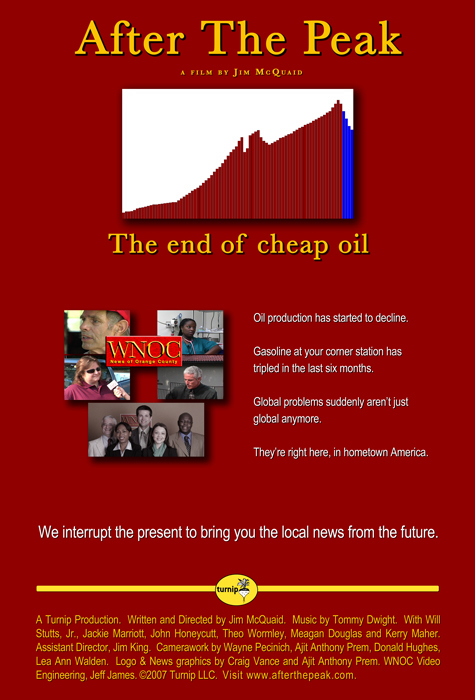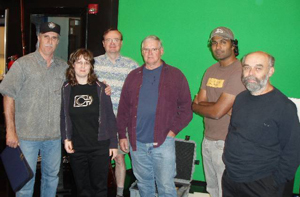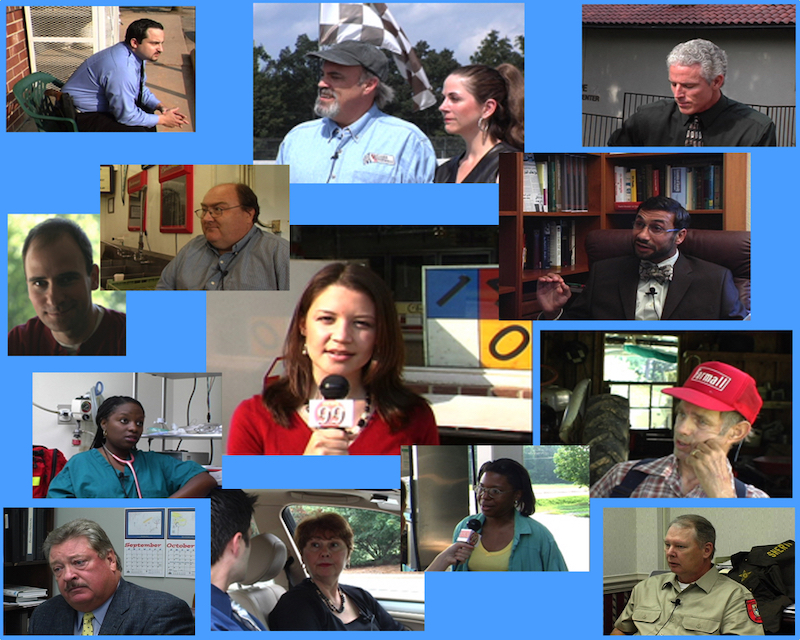A Warning in a cable news show
We interrupt the present to bring you the news from the future. And guess what? The supply of oil on the planet is finite. And the day oil production can no longer increase, but must decrease is arriving. A "local cable news broadcast" looks at the effects on Orange County, North Carolina.
After The Peak: the end of cheap oil was inspired by my personal research into the issue of oil supplies. It turns out that oil in the ground is the product of ancient history and geologic cooking. In other words, there is a finite amount of oil in the ground. The huge economic and social problems don't come when oil is completely gone; they arrive as soon as oil production must begin to go down. While demand increases - and so far, so has production - but production begins to decrease, the cost of oil begins to skyrocket.
I had written a draft of this film and put it aside but when gasoline prices at the pump first reached the 4-dollar range, Darrell Parker mentioned that I should consider pulling that script out of the folder and into production.
After The Peak is a dramatization. I could not attempt a documentary on such a huge global topic; my eyes glazed over at the thought of endless graphs and talking heads. Instead, I took a very local look at the possible problems. WNOC "news of orange county" was born at that point. The film is a version of local news...from the future.
The cable news format was perfect. After all, an "in-depth" report on TV is 90 seconds, rather than 15 seconds. This allowed the film to look at many different aspects of the problems that will arise when we come to the end of peak oil. We were most fortunate in getting access to the TV station at Elon University which we transformed in WNOC.
The film, originally shot on MiniDV, sold over 200 DVDs. You can see it here. Running time 26 minutes.




